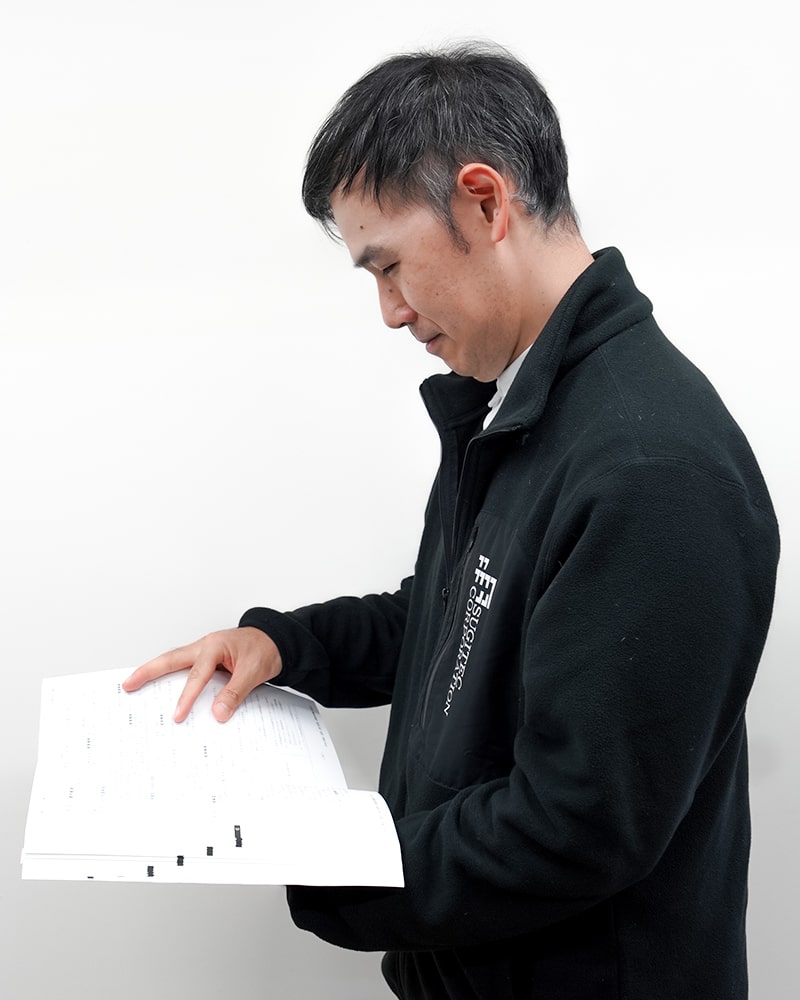INTERVIEW
Many benefits can be gained, such as strengthening relationships of trust with customers, developing new markets, and increasing employee motivation.
Sugitec Kyoto Head Office IT Division
Career Summary: After graduating from Ryukoku University’s Faculty of Economics, worked as a designer at a game development company in Osaka, and then as a DTP designer at a printing company in Kyoto before joining Sugitec. Currently, he is responsible for sales assistant and contents manager in the IT division.

-How did you come to know about the SDGs, and what are your impressions and feelings about the SDGs?
I first became aware of the SDGs when the Circle logo mark, consisting of 17 colors, began to be advertised around town. I remember that I was chosen for an environmental protection speech contest at my school when the issues of deforestation and CO2 emissions began to be raised, but as time goes by, I realized that in order to continue our economic activities, we need to think on a global scale and protect resources, human rights, and mutual understanding in multiple fields.
However, economic activities among countries have become even more borderless than in the past, and rather than sharing limited resources equally, they are now competing with each other, sometimes sparking conflicts. I felt that the balance of power over resources has been upset by such conflicts, and the normal life we had yesterday may disappear today.
-What do you think are the benefits of companies working on the SDGs?
Corporate commitment to the SDGs will have many multiple benefits: it will demonstrate corporate social responsibility and strengthen trust with customers; it will open new markets by providing products and services that meet the SDGs; environmentally friendly business activities will enable efficient use of materials; it will contribute to society through beautification and maintenance of the city and motivate employees; it will comply with legal regulations and reduce risks. Environmental friendly business activities may have many compounding benefits, such as: efficient use of materials, contribution to society through beautification and maintenance of the city, desired motivation of employees, compliance with legal regulations, and reduction of risks.
-What are your current challenges in addressing the SDGs?
The main key points that cast a dark shadow over efforts to address the SDGs in contemporary Japan are the issues of inequality, ignorance of environmental considerations, lack of gender equality, education and skills development, and strengthening international cooperation. Addressing these challenges will require mutual cooperation among government, business, and civil society, and the implementation of concrete policies and programs that follow the principles of sustainable development.
Further looking at SDG issues in the construction industry, there is a need to care for the environment, manage construction waste, improve worker safety and skills, serve the community, and use technology. Building and facility design must promote energy efficiency and environmental impact reduction, waste minimization, and reuse. Efforts must also be made to ensure worker safety and skill development, and to work with the community to maximize the benefits of the project. And it must also leverage people and technology. Through these efforts, the construction industry can contribute to the SDGs and play a role in sustainable development.